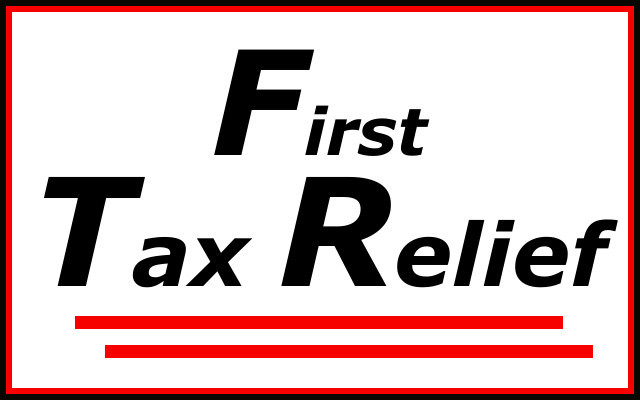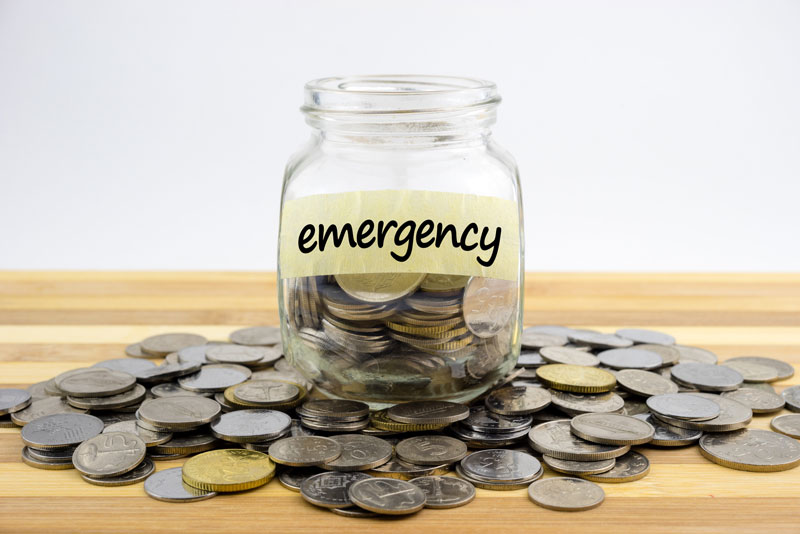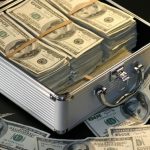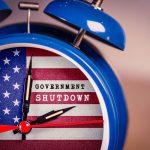With Hurricane Florence barrelling towards the southeastern United States, I’m reminded (again) about how the unexpected can put a big dent into a well-planned life.
And as a planner by nature, these kinds of slow-approaching problems (like hurricanes), are the sort of thing against which I’m always on guard on behalf of my Cleveland clients, family, and friends.
There’s a mountain of great information out there about the practicals of preparing one’s home and life for practical disasters such as what is facing the eastern coast, so I won’t touch on that today.
Instead, I thought I’d use this opportunity to give my thoughts about how you can financially be prepared for whatever comes, no matter your income level. I’ll give you some basic step-by-steps for getting ready for whatever life, nature, or even your own poor decisions might bring your way.
Before I get there, a reminder: Estimated taxes for the third quarter are due on Monday, September 17th (normally the 15th, but that’s on the weekend). If this applies to you, you know who you are. We’d love to help you, though, if you need a quick word of advice. Shoot me an email through the button at the top of the page.
Now, what can you do to prepare yourself for financial problems?
There’s actually quite a bit, even if your income is modest.
Five Steps To Help Cleveland Families And Individuals Prepare for Financial Emergencies
“It’s the little things you do that make the big things happen.” – Mike Dooley
I believe that nothing will better prepare you for emergencies, in advance, than doing the hard work in your mind and heart NOW, before they hit, to prepare.
That means recognizing that all of the best-laid plans in the world can go off the rails, even for the most meticulous planner (someone like me, for example).
But since my particular expertise is in areas financial (rather than mindset coaching, etc.), here are the steps — in order — that you should follow, such that whatever comes your way, you WILL be prepared.
1) First, put aside a BASIC emergency fund. I’m talking about $1000, tops. Set it aside in an account you won’t touch, and let it sit there.
This isn’t the “Dave Ramsey style” emergency fund; this is the basic version. And you’d be surprised — you can accumulate the $1,000 by saving only $10 a day for just over three months. This is the first step to getting yourself clear.
Because the fact is that most people get laden with debt because they don’t save ANYTHING, and use 100% of their take-home. Then life happens. Having this “mini-emergency fund” can help your mind begin the process of getting out of debt. Lay it aside, and don’t touch it, even for this next step…
2) Clear all that credit card debt NOW. Start with the smallest balance so you get a small win, and then work to “snowball” your payments: you’re applying the increasing monthly funds you have that are progressively freeing up with each monthly bill done away with. Then you tackle each of the next larger credit balances, one by one. These first two steps, having $1,000 and paying off those credit cards, will keep you from facing a financial emergency by starting out wounded and bleeding.
3) Now address your monthly cash flow. Once you’ve done the first two things (well, this step will probably happen as you tackle #2), set up a monthly budget so your day-to-day expenses are less than 65% of your take-home pay.
This is a tough pill for many in Cleveland. But it is life-changing.
The difference between those growing rich and those remaining poor is not the salary numbers — it’s their saving rate. This is when you start to save at least 10% in your retirement accounts and another 5% in taxable savings. Direct another 10% toward “unknown big purchases”. And here the fun really begins, because you can start giving to charity (10%).
4) Next, automate your better financial choices. Every month, have 10% automatically transferred into your retirement account before you receive your paycheck. Then I suggest that you automate the transfer of 25% of your take-home pay into an investment account a day or two after your paycheck is deposited.
We do this so that we can pay ourselves first. Your investment account will grow over time, and you can use it to pay for big emergencies and charitable gifts.
5) Get help to create a sound investment plan. This can obviously be the subject for years of study. Don’t try to “trick the market”. Diversify, be tax-advantageous, and most of all, get good advice from those who aren’t beholden to one particular line of financial products.
Now you’re ready for emergencies.
When you have the discipline to budget for small financial emergencies, you’re ready for the big ones. Now, when some unknown spending need strikes, you can take the money to cover the expense from your (growing) emergency fund. And you adjust your cash flow accordingly.
Obviously, emergencies are rare. So make your emergency fund an investable asset. Keep an emergency fund for several years and it should grow in value, giving you an additional emergency fund.
Here’s the truth: Whether you need it or not, being prepared for a financial emergency means peace of mind, flexibility and, ultimately, power.
Use it!
With gratitude for your trust,
Until next week,
Rich Rhodes
(833) Low-Taxx
First Tax Relief






